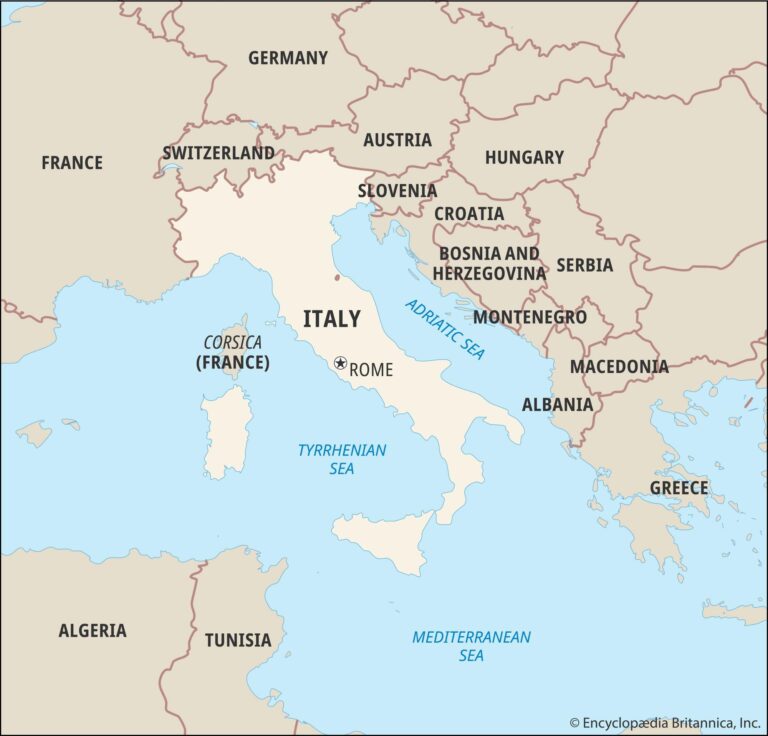Italy has signaled its willingness to recognize Palestine as a state, contingent upon the exclusion of the militant group Hamas and the unconditional release of all hostages. According to Reuters, Italian officials have tied formal recognition to key security and humanitarian conditions, reflecting broader international concerns amid escalating tensions in the region. This stance highlights Italy’s nuanced position in the Israeli-Palestinian conflict and underscores the complex diplomatic landscape surrounding Palestinian statehood.
Italy Conditions Palestine Recognition on Hamas Exclusion and Hostage Release
Italy’s recognition of Palestine remains contingent on strict diplomatic conditions, emphasizing a clear stance on security and political concerns. The Italian government has stipulated that any official recognition of Palestinian statehood will only proceed if Hamas is explicitly excluded from the process. This move underlines Rome’s insistence on engaging with political entities that reject violence and uphold peaceful negotiations. Additionally, Italy demands the immediate release of all hostages held by Hamas, reflecting urgency and humanitarian considerations amidst ongoing regional tensions.
The nuanced position places Italy among Western nations seeking a balanced approach in the Israeli-Palestinian conflict. Below is a summary of Italy’s key conditions:
- Exclusion of Hamas from diplomatic recognition and political frameworks.
- Full release and safe return of all hostages taken by militant groups.
- Commitment to peaceful negotiations and rejection of violence.
| Condition | Reason | Impact |
|---|---|---|
| Hamas Exclusion | Prevent legitimizing armed groups | Ensures cooperation with moderate authorities |
| Hostage Release | Humanitarian priority | Builds trust for diplomatic dialogue |
Diplomatic Implications for Middle East Peace Efforts and Regional Stability
The recent announcement by Italy to condition its recognition of Palestine on the exclusion of Hamas and the release of all hostages signals a strategic recalibration in Middle Eastern diplomacy. This nuanced stance reflects growing international concerns about legitimizing entities involved in armed conflict and terrorism, while also emphasizing humanitarian priorities. Italy’s position could influence other European nations, potentially reshaping the diplomatic landscape by pressuring Palestinian leadership to distance itself from militant factions as a prerequisite for state recognition. Such diplomatic criteria aim to foster a more stable framework conducive to direct peace negotiations.
These developments add layers of complexity to ongoing regional stability efforts, where multiple actors with competing interests vie for influence. Italy’s approach underlines several critical diplomatic imperatives:
- Security considerations: Avoiding the empowerment of groups deemed terrorist organizations.
- Humanitarian concerns: Prioritizing the safe return of all hostages as a peace-building prerequisite.
- Political leverage: Encouraging Palestinian leadership toward non-violent political engagement.
| Stakeholder | Interest | Impact |
|---|---|---|
| Italy | Peaceful resolution & stability | Sets diplomatic conditions |
| Palestinian Authority | International recognition | Pressure to disassociate from Hamas |
| Hamas | Political influence | Potential diplomatic isolation |
| Regional Neighbors | Security & economic stability | Influences alliances & policies |
In balancing these factors, Italy’s conditional recognition acts as both a cautionary signal and a potential catalyst for dialogue, underscoring the delicate diplomacy required to advance peace while maintaining regional equilibrium.
Recommendations for Negotiators to Ensure Compliance and Advance Dialogue
To foster progress in the delicate balance of Middle Eastern diplomacy, negotiators should prioritize clear conditions that support both compliance and peace-building efforts. It is imperative that all parties involved adhere strictly to predefined agreements, especially concerning the exclusion of organizations like Hamas that complicate diplomatic recognition. Establishing trust hinges on the transparent and verified release of hostages, an act that serves as a crucial confidence-building measure signaling earnest commitment from all stakeholders.
Effective negotiation strategies must also include continuous dialogue channels backed by neutral mediators who can ensure impartiality and sustained engagement. Key recommendations include:
- Regular verification mechanisms on hostage releases and commitments.
- Proactive engagement to separate political recognition from militant affiliations.
- Incorporating third-party oversight to monitor compliance and mediate disputes.
- Flexibility in dialogue to adapt to shifting geopolitical dynamics without abandoning core principles.
| Negotiation Element | Best Practice |
|---|---|
| Hostage Release Verification | Third-party observers with real-time reporting |
| Exclusion of Hamas | Clear-cut diplomatic terms excluding militant involvement |
| Dialogue Maintenance | Scheduled and mediated communication channels |
Closing Remarks
Italy’s conditional approach to recognizing Palestine underscores the complex interplay between diplomatic recognition and security concerns in the Middle East. By tying recognition to the exclusion of Hamas and the release of all hostages, Italy signals its commitment to a peaceful resolution while balancing international counterterrorism efforts. As the situation continues to evolve, Rome’s stance reflects broader geopolitical dynamics shaping the region’s future and the challenges faced by nations seeking to navigate these sensitive issues.




